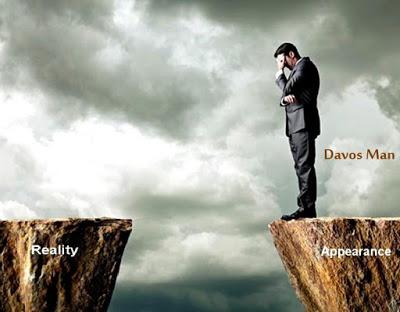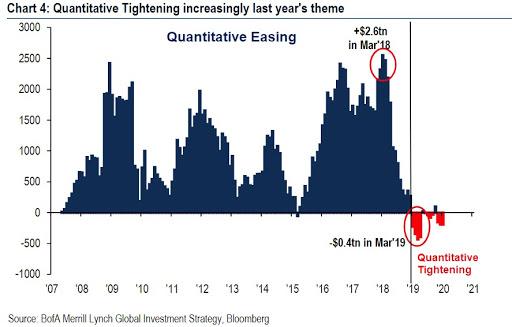This year’s Davos World Economic Forum conference is not for the faint of heart. Pessimism is pervasive – a 180 from the last few years of mutual-masturbation and self-congratulation on a job well done in creating a recovery (in asset prices, if nothing else).
But, as they say, it’s different this time, as ‘Davos Man’ is ‘punched in the face’ of a global economic slowdown and asset price plunge that most definitely was not in their pre-fight plan.
As former fund manager and FX trader Richard Breslow notes, some Davos conferences are better than others. I’ve always resented the ones that were preachy and out of touch. This time around, at least so far, a lot more caution is being expressed, even if tempered with the obligatory notes of optimism.
It’s worth listening… We used to be told that things aren’t great but there was light at the end of the tunnel. Now we hear things are good, but we need to be concerned.
An appropriate bout of candor. And worth considering as we evaluate just what has propelled equities through well-advertised resistance and whether the latest back-up in yields will have legs beyond periodic auction concessions. Not to mention the populist political impetus that is showing no sign of letting up.
Via Bloomberg,
As a sampling of what we’re being told, the IMF has lowered global growth forecasts again. And we are told it isn’t a big deal. I might agree, except that if they keep nudging the numbers lower, eventually it will add up to a real problem that can’t be explained away as technical adjustments. Frankly, it looks like a trend rather than a one-off.
Axel Weber, Chairman of UBS and former Bundesbank president, speaking of ECB policy normalization, said it is “mission aborted” for this cycle because the economy is weakening. For reasons not entirely clear, he still thinks the Fed has one or two hikes in it for 2019, but he went on to discuss pauses and room to cut if necessary. The ECB meets this week and it will fall of deaf ears if a dovish President Draghi gets pushback from any of the hawkish constituent central banks.
Ray Dalio of Bridgewater took the Fed to task for previous rate hikes and, to make matters even more stark, likened global financial and geopolitical conditions to what prevailed in the 1930s. He did the IMF one better by talking about “substandard growth rates” around the world. Especially in Europe. Which is really interesting because I keep getting buy-euro-versus-dollar recommendations based on relative GDP expectations.
And you can’t blame it on something in the Davos water. Which I’m assured is as excellent as always. China’s President Xi Jinping told top members of his government that greater efforts were needed to prevent “major risks,” in remarks that indicated greater urgency than in the past.
One Davos attendee, ex-RBI Governor Raghuram Rajan, for whom I have tremendous respect, observed that the U.S.-China dispute is “far bigger than trade.” That’s really important as equity futures continue to chase every headline. It’s a mistake to oversimplify every geopolitical threat to the global order of things.
Rajan also said it would be good for markets not to depend too much on the Fed. Good luck with that, as the U.S. government shutdown extends into another week.
What we see here has everything to do with economics and nothing at all. What has the attendees spooked isn’t just economic numbers slowing down. That’s how the argument is couched. It’s the begrudgingly-admitted realization that it takes more than propping up the S&P 500 index to make the global economy actually work.
And the gnawing question is whether there is any political will to face the problem.
via ZeroHedge News http://bit.ly/2R7hb10 Tyler Durden


